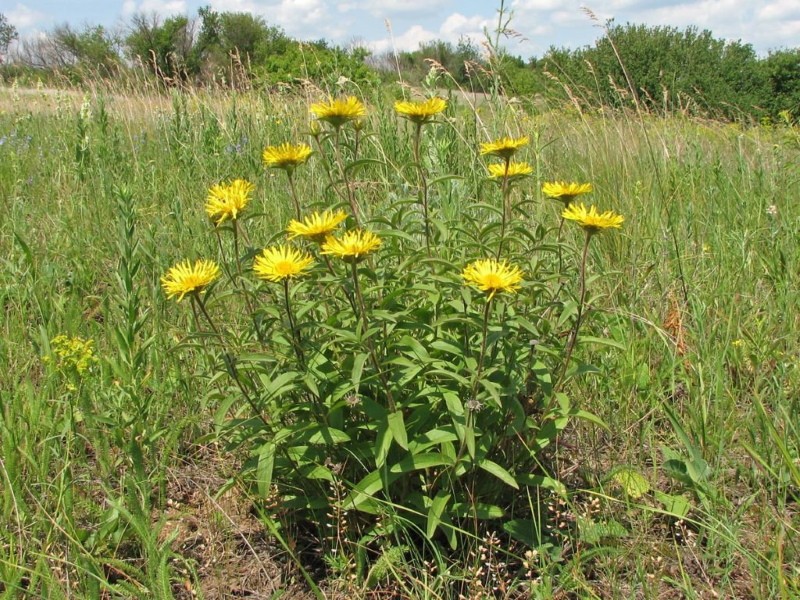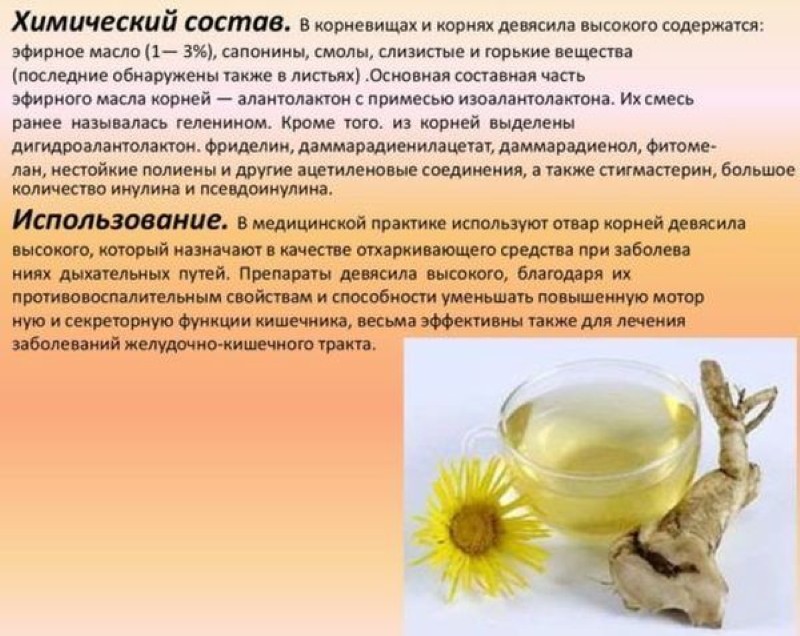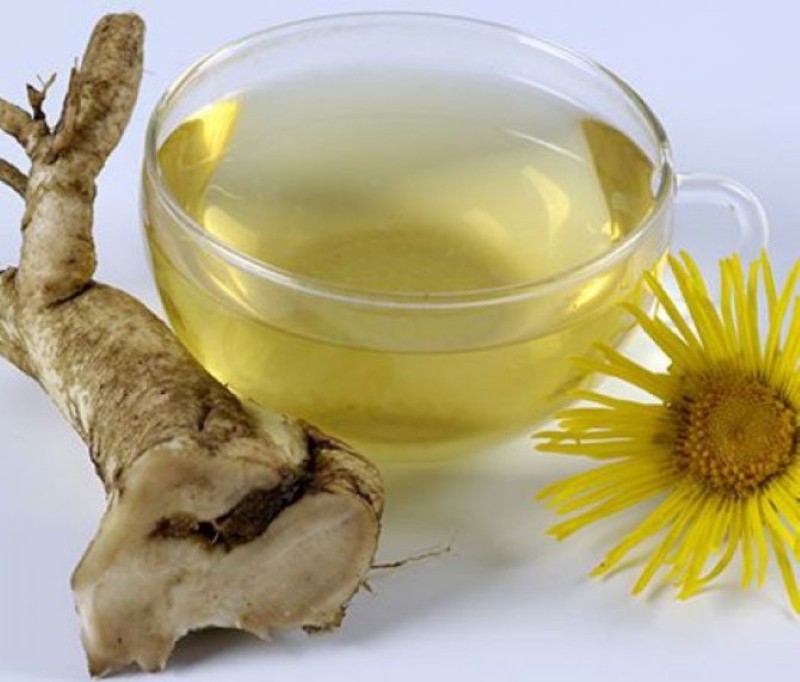Magic root with 9 powers - elecampane, useful properties and contraindications
 Rarely what herbs that are used for treatment in traditional medicine manage to achieve recognition at the official level. However, this plant has long been widely used in modern pharmaceuticals. Meet - elecampane, useful properties and contraindications of this miracle of nature were known to the ancient Greeks. They have not lost their relevance now. Moreover, science appreciated the high efficiency of elecampane and began to use it for the benefit of man. So, Alanton (tablets for ulcers), Alatolactone (taken with ascariasis) are made from elecampane. But not only these problems can be solved by medicinal herb.
Rarely what herbs that are used for treatment in traditional medicine manage to achieve recognition at the official level. However, this plant has long been widely used in modern pharmaceuticals. Meet - elecampane, useful properties and contraindications of this miracle of nature were known to the ancient Greeks. They have not lost their relevance now. Moreover, science appreciated the high efficiency of elecampane and began to use it for the benefit of man. So, Alanton (tablets for ulcers), Alatolactone (taken with ascariasis) are made from elecampane. But not only these problems can be solved by medicinal herb.
Elecampane - useful properties and contraindications

Of the most valuable components of the chemical composition of the plant, it is worth highlighting inulin and essential oil. The first is important for the stomach and pancreas, and the second is for fighting various inflammations and more.
What effect does elecampane have on the body
 Ointments, decoctions, juice, infusions and tinctures are made from the rhizome of the plant, which:
Ointments, decoctions, juice, infusions and tinctures are made from the rhizome of the plant, which:
- normalize metabolism;
- remove worms, roundworms and tapeworms;
- relieve inflammation;
- hold the chair together;
- improve sputum discharge;
- have a diuretic effect and relieve swelling;
- lower blood pressure and cholesterol levels;
- strengthen blood vessels and heart;
- treat skin and stomach diseases;
- strengthen and tone the body.
Elecampane is indicated for ulcers, gastritis, joint diseases, cholecystitis. It is effective for female diseases (cystitis, painful menstruation). And men will be cured of infertility and prostatitis.
In what cases it is not recommended to take elecampane
 During treatment with infusions or decoctions, it is important to accurately observe the dosage. If it is exceeded, nausea and vomiting appear, problems with stool, insomnia begins to torment.
During treatment with infusions or decoctions, it is important to accurately observe the dosage. If it is exceeded, nausea and vomiting appear, problems with stool, insomnia begins to torment.
Side effects from the gastrointestinal tract are inherent in the first days of treatment, but usually on the third day they disappear.
In some cases, there may be an allergy to the components of the herb, then it cannot be taken. Also banned is elecampane for pregnant women, lactating women and children under the age of 3 years. In addition, treatment is contraindicated in the presence of kidney pathology, since the diuretic herb increases the load on the organs. And given the laxative effect of elecampane, it is not recommended for chronic weakening of the rectal tone.